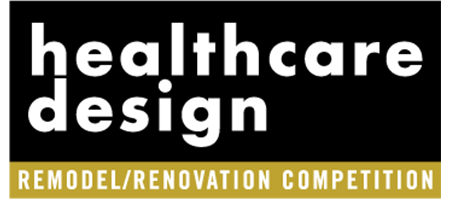The 2024 Healthcare Design Conference + Expo, Oct. 5-8 in Indianapolis, features more than 100 keynote and educational sessions.
New for 2024, the sessions are searchable by level (general, foundational, and master class) as well as by track (behavioral health, research sustainability, clinical perspectives, etc.), to help attendees tailor their conference experience.
The 13 foundational-level sessions are geared toward new and emerging leaders in the industry. These sessions explore key design strategies from adaptive reuse to sustainability, as well as applying a future lens to technology in healthcare environments and how that will shape the built environment.
Here’s a selection of some of the foundational sessions offered at this year’s conference; for the full conference lineup, go here:
E08 – Save Costs, Integrate Clinicians in Space Design with Mock-ups and Technology
Sunday, Oct. 6, 9:45 a.m.-10:45 a.m.
Speakers: LeAnn Schlamb, clinical planner, Veterans Affairs Office of Construction & Facilities Management (CFM); Devin Harrison, associate director, assessment collaboration and outreach, VHA Simulation Learning, Evaluation, Assessment, and Research Network (SimLEARN); Amber Licklider, simulation coordinator, Kansas City Veterans Affairs Medical Center (VAMC); and Fred Sieling, director, Guidehouse Inc.
In this session, representatives from the Veterans Affairs Offices of Construction & Facilities Management (CFM) and Simulation Learning Evaluations, Assessment & Research Network (SimLEARN) will demonstrate the impact of using both physical mock-ups and digital twin technology to enhance the overall design of healthcare space.
Speakers will compare and contrast the use of physical mock-ups versus digital twins, explain their impact on the built healthcare environment, and justify the benefits of using one or both methods to evaluate designed spaces.
E32 – Feeding Two Birds with One Scone: Addressing the Dearth MOB Space and the Abundance of Vacant Retail Space
Sunday, Oct. 6, 3:15-4:14 p.m.
Speakers: Emily Marvel Stalling, principal, healthcare, May Architecture; Dawn Mixon Bennett, director of healthcare planning, May Architecture; Bryan Griffith, executive director, Piedmont Physicians; and Ketan Sanghvi, executive director of real estate, Piedmont Healthcare
The medical office building (MOB) occupancy rate has risen alarmingly to well above 90 percent in several major U.S. cities. As a result, many metropolitan healthcare systems have struggled to find suitable space to expand their outpatient services to meet the demand of growing populations.
At the same time, the ubiquity of online shopping and the impact of Covid-19 have closed many big box stores, resulting in an abundance of abandoned retail spaces.
In this presentation, speakers will discuss the statistics behind the shortage of MOB space, how one healthcare system has been expanding into retail spaces, challenges with these types of projects, and how a large contiguous big-box store footprint can meet the needs of a multispecialty clinic.
E49 – Cultivating Collaboration: Connecting Emerging Leaders in Healthcare Design
Monday, Oct. 7, 9:30-10:30 a.m.
Speakers: Holly Harris, architect, healthcare planner, Master of Healthcare Administration (MHA) candidate 2026, UNC Gillings School of Global Public Health; Shan Jiang, director of research, GBBN; Stephen Parker, architect, behavioral health planner, Stantec
In this interactive course and panel discussion, next-generation leaders from the American Institute of Architects’ Academy of Architecture for Health will advise emerging healthcare designers on how to navigate the diverse career paths in the industry.
Discussion topics and Q&A will focus on available resources, research and case studies, codes and standards, and fellowship opportunities.
Learning objectives for the session include receiving insight and advice from industry leaders, become familiar with various organizations and resources available to emerging professionals; and understanding and applying patient-centric and evidence-based design practices in coordination with peers, clients, and consultants in a variety of healthcare settings.
E67 – Emerging Technology and Integration for the Hospital of the Future
Tuesday, Oct. 8, 8:15-9:15 a.m.
Speakers: Mike Maselli, managing principal, Introba; Abhi Devireddy, technology systems director, Essentia Health
Speakers will outline emerging technologies such as telehealth, remote patient monitoring, autonomous mobile robots, and digital twins being deployed and planned to drive patient experience, clinical workflow, and facility operations.
The presentation will also show a step-by-step process for each organization to assess the current state, envision a future state, and build an incremental roadmap to follow to achieve the objectives, outcomes, and goals of the healthcare provider.
Attendees will walk through the financial return on investment of such systems and innovations, with an explicit explanation of the capital and operational costs and expenses.
E87 – Relationship Building and a Net-Zero Carbon Future: The New Cowichan District Hospital Hopes to Give Back to the People and the Land It Will Serve
Tuesday, Oct. 8, 1:15-2:15 p.m.
Speakers: Dan Simpson, principal, ZGF Architects; Meagan Webb, H.H. Angus & Associates; Kyle Basilius, principal, Parkin Architects
This presentation offers a case study on the Cowichan District Hospital in Duncan, British Columbia, Canada, which was designed as a net-zero-carbon and fully electric hospital, to provide insights into how the healthcare design industry can and is meeting the carbon-neutral challenge.
The speakers will highlight decarbonization strategies that also optimize staff well-being, healing environments, and indigenous inclusion. In addressing patient-centered design, the team collaborated with Quw’utsun Peoples, ensuring the facility meets clinical needs while respecting cultural sensitivities.
Attendees will learn how to identify building design strategies aimed at fostering cultural sensitivity within local communities and promoting programmatic inclusion to enhance public health as well as understand what building systems and solutions supported the project’s goal to become the first fully electric hospital in British Columbia.
For news updates and information on the 2024 HCD Conference + Expo, click here.











